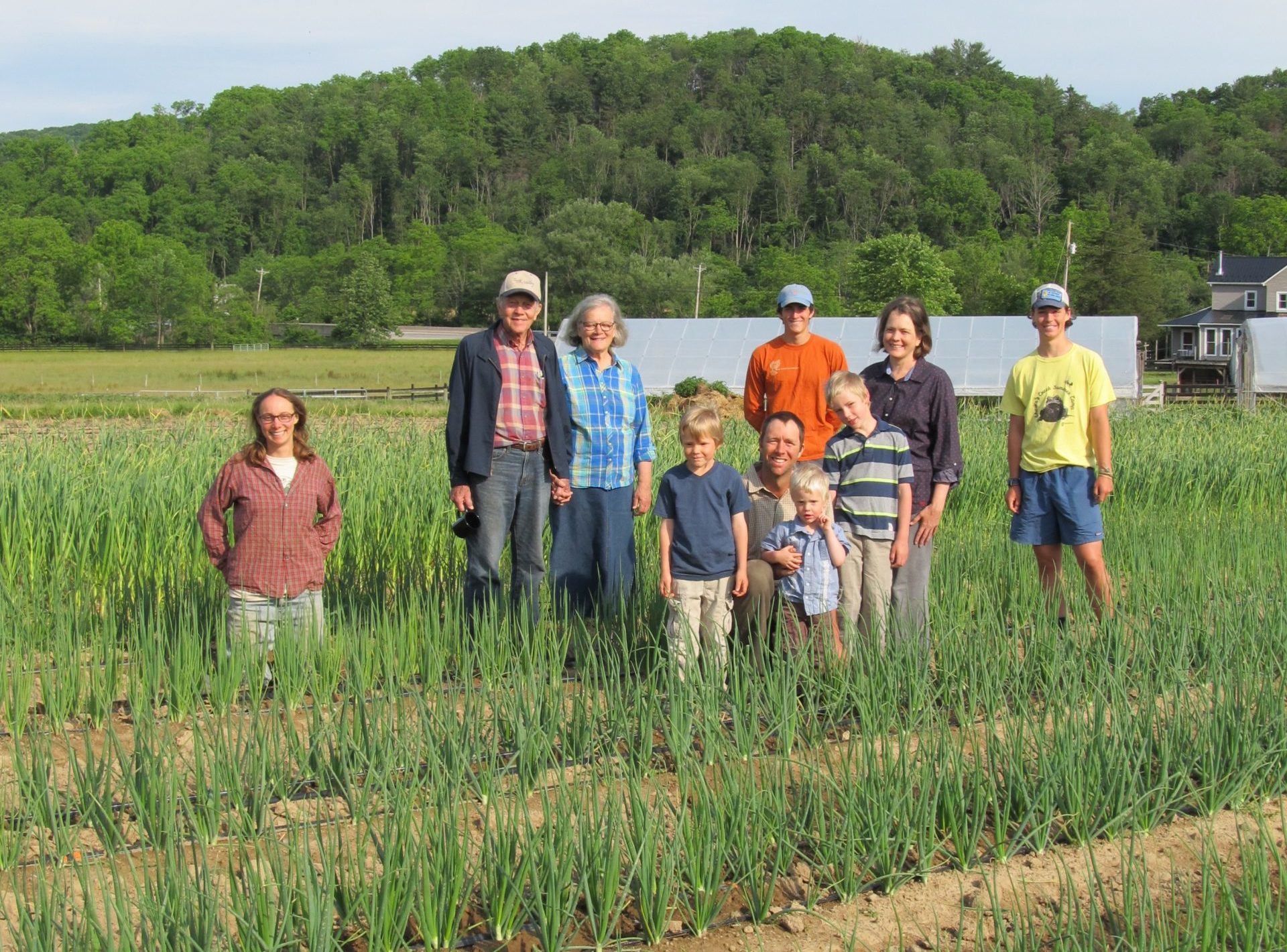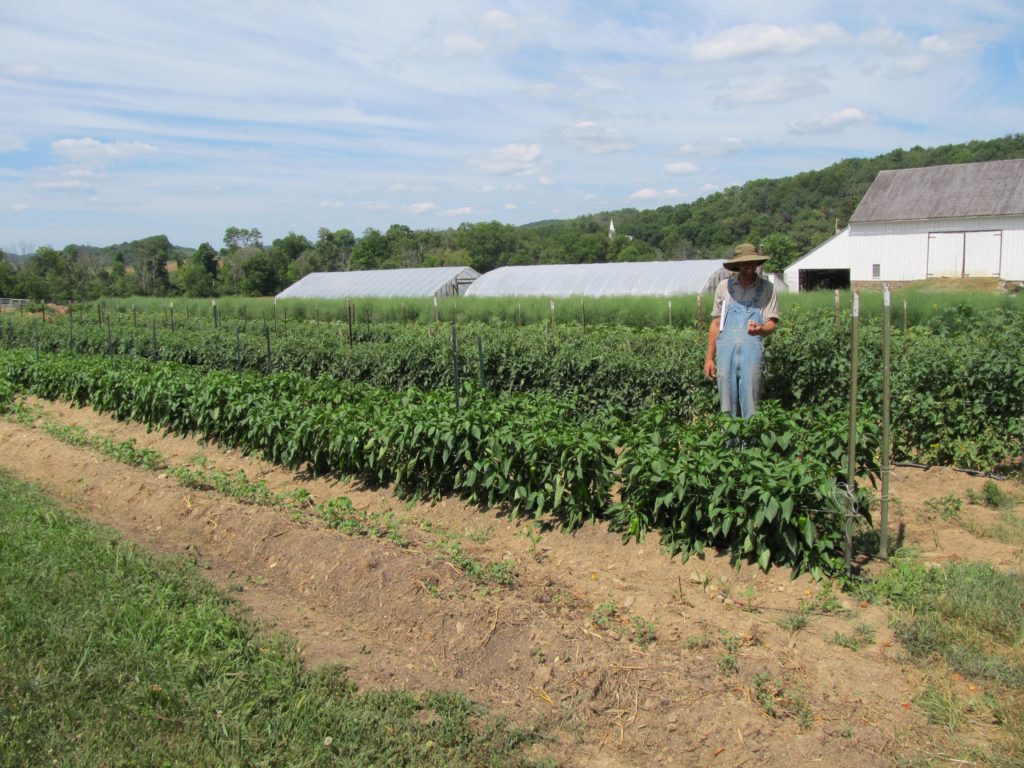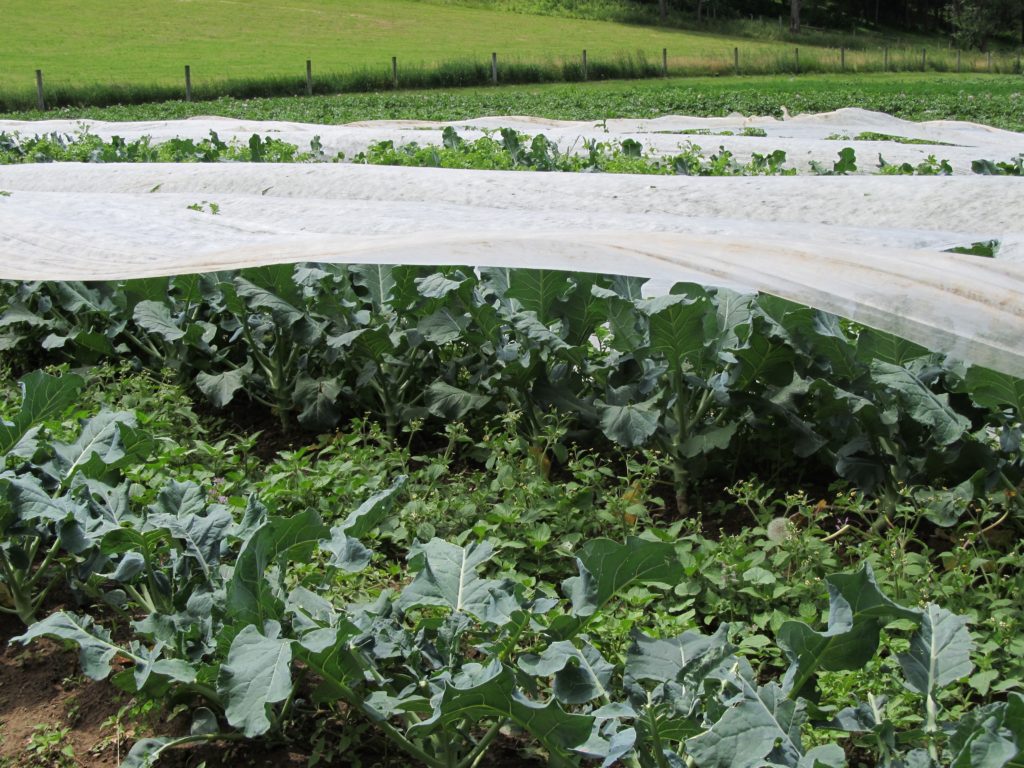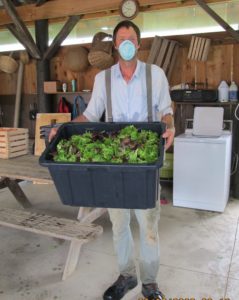
Jul 29, 2020
Pennsylvania’s Plowshare Produce practices intensive organic production
Micah and Bethany Schonberg rent the 2.75 acres that they have been farming for the last 12 years from Bethany’s parents Tom and Sharon Spicher who own 50-60 acres. Sharon’s grandfather farmed the land with horses in the 1940s. Her parents currently raise sheep on their property that they sell locally.
Micah and Bethany got their start in farming by interning at Village Acres Farms with Roy and Hope Brubaker. For the last 12 years, they have been growing a wide variety of vegetables for their 100-member community-supported agriculture (CSA) farm. The CSA runs from the last week of May through the first week of November. Most years, they also have a winter share available.
CSA memberships are divided between the towns of State College and Huntingdon with a few members picking up their share at the farm. Micah makes deliveries on Tuesday to State College and Fridays to State College, Huntingdon and pickups at the farm. There are approximately 140 households represented in the 100 shares. The cost of a share is $625 for 24 weeks. The members usually receive 11 to 12 items depending on the time of the season and they usually have an additional three or four choices that they can make.
Organic expansion planned

Plowshare Produce is a certified organic farming operation and it is looking to expand its acreage by adding an additional two acres in 2021. Currently there are three employees: Lex Trevelino, a senior in the Agricultural and Biological Engineering Department at Penn State University who works 30-35 hours per week; Johanna Jackson who is in her fifth season at Plowshare Produce and works 25-30 hours per week; and Sean McLaughin who works 20-25 hours per week. Bethany handles the logistics, bookkeeping and the weekly newsletter to subscribers. In addition, 10 people work 2.5 hours per week for their vegetables. Plowshare Produce may seem small by conventional standards but the way they intensively manage the land and resources maximizes the production of the land that they farm.
A large majority of crops they grow are established by transplants that are started in a small greenhouse. Larger transplants are grown in 72-cell flats and include broccoli, cabbage, cauliflower, tomatoes, eggplant, peppers, cucumbers, muskmelons, summer squash and early sweet corn. A wide variety of leafy greens and onions are grown in 264 paper pot cell trays, which work with their paper pot transplanter. For direct-seeded crops, Micah uses two different Jang seeders, a JP-1 for smaller seeds and a TD-1 for larger seeds.
Cool-season crops such as, lettuce mixes, head lettuce, radish, salad greens, spinach, broccoli, cabbage, cauliflower, kale, turnip, kohlrabi, rutabaga, beet, parsnip and carrot, are planted both in the spring and fall. A large planting of several garlic varieties is also grown. So on 2.75 acres of land, their intensive cropping system actually allows them to farm the equivalent of 3.5 to 5 acres of production.
Warm-season crops include tomatoes, peppers, eggplant, snap beans, muskmelons, watermelons, cucumbers, summer squash – both yellow and green, sweet corn, a large planting of Beauregard sweet potatoes and Irish potatoes, Dark Red Norland, Pontiac, Eva, Kennebec and 14 rows of a new variety Blackberry, a purple skin/purple flesh specialty potato grown for Tailgater Taters LLC who sell a 2 oz. pack with blue/purple and white potato chips to Creamery at the Penn State University and Lebanon Valley College and online.
Perennial crops of rhubarb and asparagus are grown and are part of the early season menu. In addition, celeriac is grown along with herbs like dill, cilantro, sage, thyme and parsley. Micah said he gets his seed from Seedway, Johnny’s, Harris and Fedco.
Production techniques

Weed management is accomplished by pulling large sheets of black on white 4-mil thick plastic over a plot that is to be planted, thus allowing the small weeds to be killed prior to planting. Thus on the farm you see large tarps covering blocks of land waiting to be planted into another crop. Micah feels that this really keeps the weed pressure under control, which can be a serious problem in organic production systems. Micah also does hand weeding and some tractor cultivation. My personal observation is that this method is working very well as the fields were clean of weeds.
Drip irrigation is used extensively throughout the farm. A 6-horsepower pump delivers water from a nearby creek. Micah uses a fiberglass sand filter and backflushes after every five irrigations or so to maintain good water quality. Drip tape is installed on the surface of the soil and is reused for several years. The spacings of his emitters are 6 or 12 inches, depending on the crop. Almost all crops on the farm are being drip irrigated, including sweet corn, sweet and Irish potatoes.
Cover crops are utilized extensively – oats, rye, buckwheat, hairy vetch and field peas. Micah uses cover crops to smother weeds but also to maintain healthy biology of the soil and to maintain good soil structure, etc. Micah also uses liquid fertilizer blends from Keystone Bio AG located in New Holland, Pennsylvania, for fertigation through the drip line and foliar feeding of both micronutrients and macronutrients. He used a 4-gallon backpack sprayer to apply the foliar materials. He tests the soil regularly (every two years) to help fine-tune his fertility program.
As far as pest control he makes extensive use of row covers and some Spinosad for managing flea beetles on fall-transplanted brassicas and on eggplants. For controlling foliar diseases, he relies on healthy plants and high tunnels which keep the moisture off the crop.
Row covers are used for season extension and insect pest management. Additionally, two stand-alone conventional high tunnels are used for winter greens, tomatoes, peppers, summer squash, cucumbers, eggplants, ginger and early snap beans.
In addition to the two conventional high tunnels, he also utilizes a four-bay, 200-foot long Haygrove high tunnel for the production of strawberries, trellised snap peas, tomatoes, summer squash, peppers, cucumbers and muskmelons. This past spring Micah planted a crop of spring broccoli and cabbage but is not convinced that was a good use of the high tunnel.
Micah plants oats both in the fall and spring. The fall-planted oats will winter kill and the residue can be raked off and the crops planted. In the spring the oats are allowed to grow to knee height before he mows them down. When the oats are mowed, a sheet of white-on-black plastic or the reverse was placed over the residue for 10 days. Then different crops are transplanted into the remaining residue. He is also looking at keeping the plastic on for a longer period. This system looks to be working out nicely and may be incorporated into more of the farm.
Keeping it local

Once produce is harvested, it is taken to a small packing and storage shed. The shed includes stainless steel benches for packing, a walk-in cooler kept at about 35˚F, a warmer cooler kept at 55˚F. A concrete floor allows for the delivery truck to drive inside the shed and can be kept clean. There is a washing machine dedicated to spinning the salad greens. It is very neat and extremely clean and the produce is certainly of high quality. Micah said that his niche is local production, knowing his customers and them knowing him and his farm and the freshness of the produce that he is delivering to the members.
Micah mentioned that he is not growing winter squash or pumpkins this year, as he cannot really rotate them the way he would like to so he is having another organic grower growing them for him.
I want to thank Micah, Bethany and the future young farmers, Ben, age 7, Daniel, age 5 and Timothy, age 2, for allowing me to visit your farming operation.
At top, the crew at Plowshare produce in front of an onion crop. Photos: William Lamont Jr.






